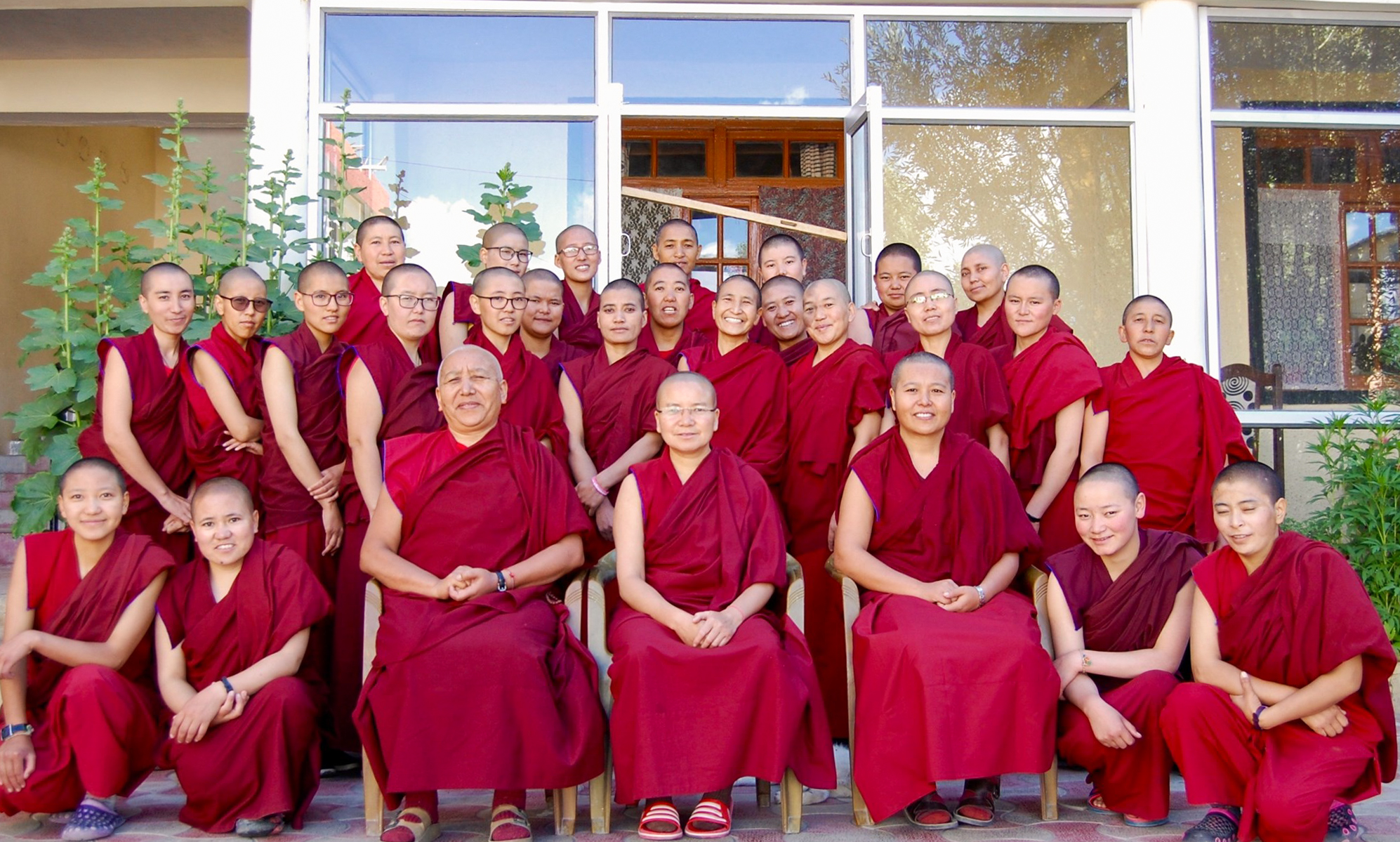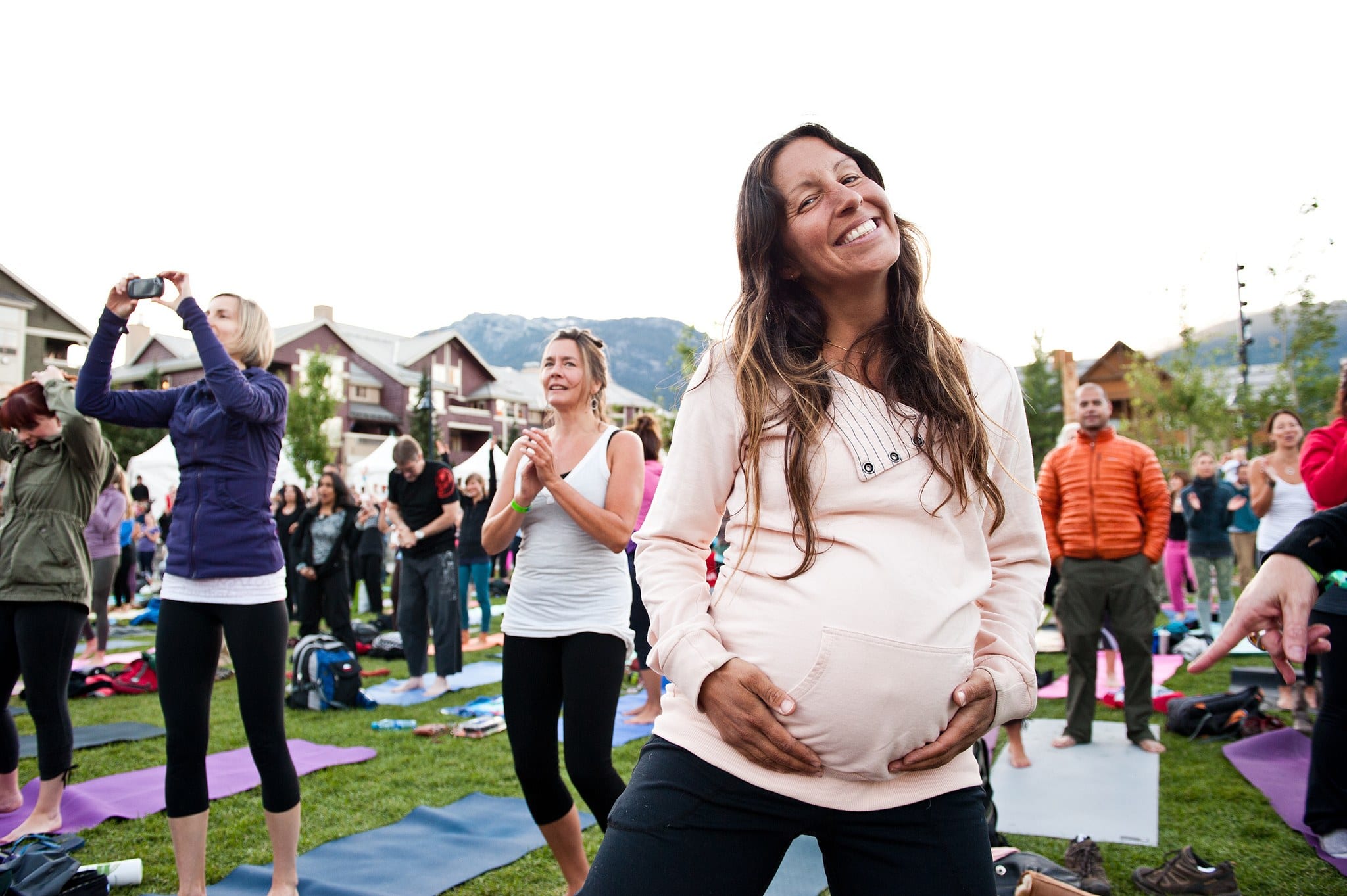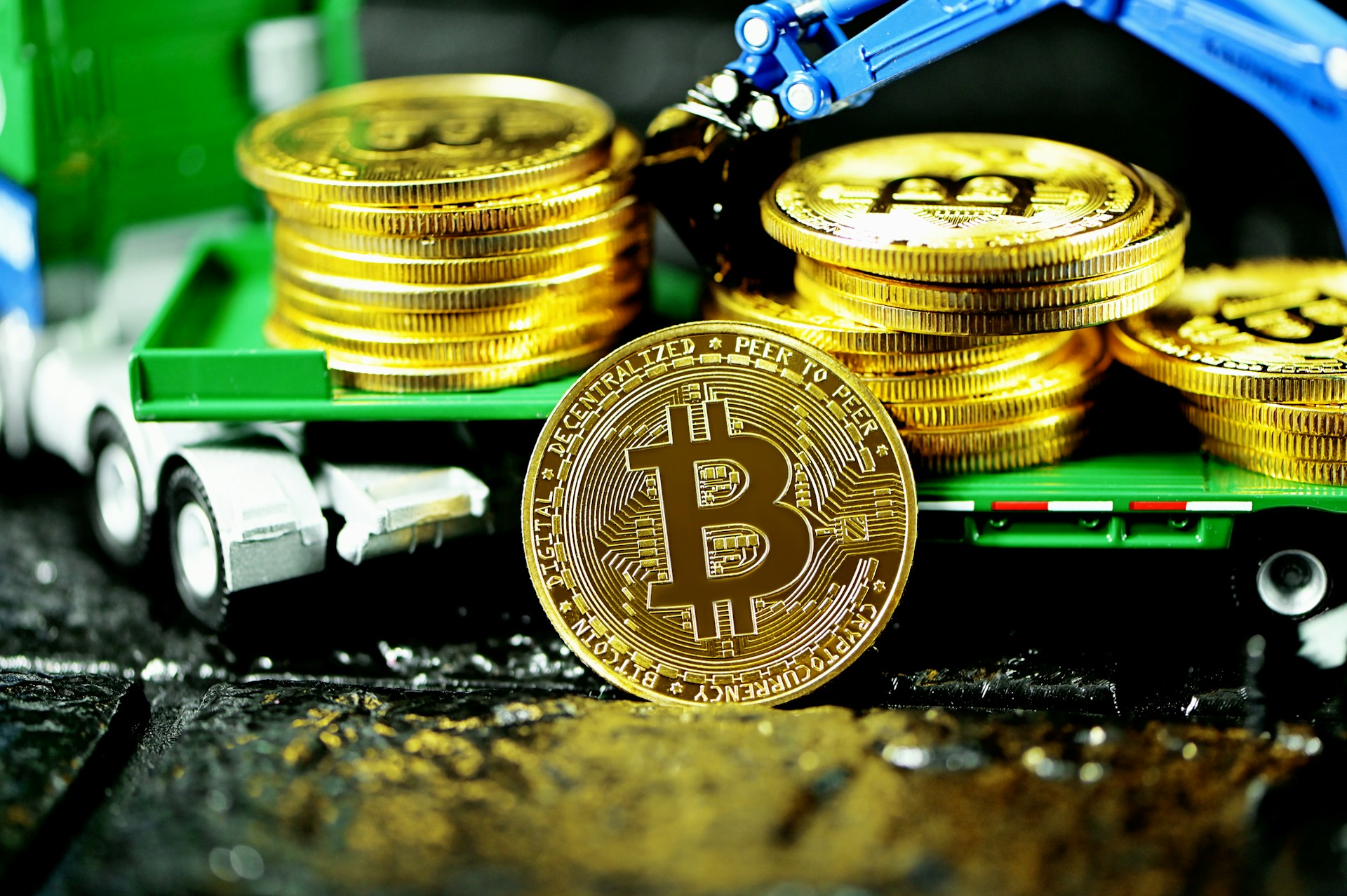3 Profound Takeaways from the Be The Better You Retreat | Dean Pohlman | Better Man Podcast Ep. 094
This past weekend, 10+ guys came together at the Be The Better You Retreat to be open, honest, and vulnerable. While we worked out and did yoga—it is a Man Flow Yoga retreat after all—the true value of the...

Episode 094: 3 Profound Takeaways from the Be The Better You Retreat - Dean Pohlman - Transcript
Hey guys, it’s Dean. Welcome to the Better Man podcast. Today’s episode is a solo episode, and in this episode, I want to talk about the experience that I had with our most recent men’s wellness retreat. These retreats I do, I call it the Be the Better You Retreat, and they are largely based on the content that we cover here in the Betterment podcast.
The themes of bettering yourself, the themes of paying more attention to your overall wellness, of going into those topics that make you uncomfortable and creating meaningful change. And these weekends are incredibly powerful for the attendees, but also for me. So in this episode, I want to first off, thank everyone who participated. I’m going to go into the themes that we covered and some of the biggest lessons from the weekend.
the things that really stood out to me from the people who attended. And then I want to talk about my own personal takeaways from the weekend from the retreat, because even though it’s for the guests, it always has a huge impact on me and it helps me grow and learn things about myself as well. So let’s get into this.
So, first off, I just want to say thank you to everyone who participated. the sponsors, the speakers. We had strong coffee. We had Paleo Valley with beef sticks. We had Yeti help out again. and then we had speakers as well. We had, beer brand was also there. They helped out our speakers were Arnie Manion of Scale with psychology.
We had Adam Horn of more mindful yoga. He gave a conversation about emotions and emotional well-being. We also had Mike Bledsoe, who is starting a new project called The Mission After for veterans. And, we just had some really, really great speakers and some awesome conversations. And the sponsors also made it, just a really great event.
So I want to thank all those guys. Most importantly, I want to thank the attendees, though, the guys who showed up, who were open, who were honest, who were vulnerable. I think it was the the coolest part of these weekends are that people come with the intention that they’re not going to share that much, and then they end up sharing everything.
They just get into the biggest struggle that they’re having, and it usually happens within the first day or so. And that’s really cool to see. 11 or 12 or however many guys, how many strangers come together to feel uneasy initially, but then within a day it’s like they’ve known each other for a long time. They feel comfortable sharing things with each other, and I think the reason why they feel that comfortable is because that’s the environment that we create.
The environment is focused around getting you to be comfortable being open and expressing things that you might not normally express in everyday life, one of the attendees actually pointed out it’s much easier to share things with a stranger than it is to share somebody, than it is to share with somebody in your life who you see every day.
Because, you know, ultimately, that stranger isn’t going to care as much. So that’s also, that’s also a good point. But, anyways, it’s just a it’s a really powerful experience. So some big takeaways from the weekend, some of the big themes that we discussed. So there was a big yearning for more intimacy, intimacy with partners that we talked about this weekend.
Just people who want to connect more but who don’t lean into that discomfort. They don’t want to ask more of their partners. Maybe there are things that they just don’t want to share with their partners, because they think it will push them away. So that was a big theme. That was something that, that was explored a lot this weekend.
And a big takeaway for me, this was this is talked about a lot was this idea of of stop gaslighting yourself. So gaslighting, if you’re familiar with the term gaslighting, this is something that is typically done in interactions with, you know, you would think of. This is something to be done with other people. So if you’re having an argument with your spouse and he or she says, no, that’s not how you feel or know that’s not true, that’s gaslighting.
Gaslighting is when you are not acknowledging, the other person’s experience when you’re trying to, it’s the exact opposite of affirming their feelings. So gaslighting and one thing that you might not realize is that you gaslight yourself a lot. A lot of people look back on struggles that they had, or they look back on, you know, particularly difficult situations, and they try to explain away what they were feeling in the moment.
And so they’ll look back at something like, like when, like one thing that we discussed was there was a guy who got bullied a lot as a kid. And we went back and we talked about like, hey, why is that? You know, how does that show up in your life today? And as we were discussing his experience with that, he he tried to he kind of tried to explain away the feeling, right?
Instead of saying, that was really hard for me. It was, oh, it was the other people. They just it was their fault. They just they didn’t know what they were doing. And it’s important to acknowledge what you’re feeling. And this is just the first example that came to mind. It was actually in another example that this this, this phrase stop gaslighting yourself came up.
And that was from, one of the guest speakers, Annie Manion, who is the second, the second time we’ve had in there. And he’s amazing. But the point here is that you should be honest with yourself about what you’re feeling and, and actually acknowledge and experience the feeling that you’re having, rather than trying to justify why you shouldn’t have it but actually acknowledge.
No, I’m feeling sad right now. I am feeling sad right now. As opposed to saying I shouldn’t be sad because I’ve got a great life now. Experience the emotion. And so that was one thing that I thought was worth mentioning. The second thing was had to do with this, I, this, that idea that I discussed earlier of having greater intimacy and that is to ask for what you want, even if it’s uncomfortable.
The thing that we discussed was kind of sitting around at the end of the evening with your partner, with your spouse, and you want to connect more with them, but maybe they’re watching TV or they’re on their phone or they are, you know, maybe they’re tired and they’re doing something else, but you want to connect with them and it’s up to you in that moment to ask for what you want, even if it feels uncomfortable.
I know personally, I can really relate to that. I can relate to sitting around with my wife at the end of the day and you know, the TV’s on and it’s so easy to just veg out and relax. But there are things that I want to discuss with her. There are things that I want to share with her and I don’t because sometimes it might be uncomfortable.
But that discuss it that we that that initial feeling of apprehension that we feel when we want to share something is an opportunity. There’s actually an opportunity there for you to develop a closer relationship, for you to feel more connected, rather than doing something that isn’t going to help you get there. And and then start to say that, you know, you shouldn’t sometimes just chill and watch Netflix or TV with your partner.
but, you know, it is to say that that’s not always a solution. Sometimes you do really want to connect. And the third big takeaway that I want to share is that people should be committing to changes for a shorter amount of time, rather than saying, I’m going to do this. And then rather than saying I’m going to do yoga every day, or I am going to eat healthier every day, it’s usually there’s usually not a time frame attached to it.
And so when you do that, you’re setting yourself up for failure. Failure. Because if you set if you say to yourself that I’m going to start eating a healthy diet and I’m not going to have any artificial sugar, that means that any time you have artificial sugar after that, that you are breaking your goal and you’re subconsciously sending a message to yourself that you don’t follow through on what you say.
So it makes much more sense to commit to a habit or commit to some sort of action for a more limited amount of time. 28 days is a great amount of time to commit to, because as humans, we can perceive how long that is for. Weeks is something that we can say, okay, four weeks, I can, I can do four weeks, and then you can revise that if necessary.
We can we can go look back at it at the end of every week and say, was this doable? Can I keep this up for another few weeks? you can also identify where the friction was, what made it more difficult. And then the other thing is to actually celebrate when you do the behavior this gets into, there’s a longer conversation required for this, but the short of it is that when you can tie celebration, when you can wire celebration in your brain with the action itself, then that creates a signal to your brain that the action you do leads to celebration.
So that feeling of euphoria that you get when you’re celebrating something, you can actually you can hack that and you can kind of attach it to the end of a new behavior that you’re trying to do. I’ll give you an example, because that might sound complicated. So if you are trying to do a daily yoga habit, or maybe, let’s say five days a week for 28 days, because that’s more manageable.
So if you’re trying to do a daily yoga habit five days for a month, every time you finish your yoga session, you’re going to stand up and you’re going to celebrate like you just did something awesome because you did. But also you’re going to celebrate whatever celebration means to you. the way that I described it at the retreat is pretend like you’re watching your favorite sports team and they win the game, or they win the championship, and you jump up and you celebrate and you scream, woo!
You know, or yeah, I can’t do that right now. Because if I were to scream into the microphone, it would it would shock all of you and it would not be a pleasant experience. But the point is that you want to think of what you would do when you celebrate naturally, and then do that at the end of the behavior.
And that helps you wire in the habit, to make sure that you are more likely to do it in the future. So those are those are just some of the big takeaways. But those are those are what I wrote down. if I had to share one more, then I think what’s really significant is people will generally accept you when you share yourself more.
I think there is this big fear that people will not like you when you start to show more of yourself and in reality, especially at this retreat that we did, the more that people explained who they were, the more that I felt connected with them. And this was consistent with the other people in the group. People felt more connected when you expressed more of yourself.
And so that was just a really cool theme, that I also saw that I wanted to that I wanted to share with you guys. So at the end of the event, there’s always this, this feeling of sadness that it’s over and, and a fear that you won’t be able to implement all the changes and, and hopes that you had while you’re at the retreat.
Because when you’re when you’re there, you’re in this, this really encouraging environment. You don’t have the normal stresses of your day to day life. You’re not working for the most part. And there were very few people working. If at all. So, you know, it’s a totally different environments, a very optimistic environment. And then when you go home or you go back to where you were, it’s you know, you get back into it and you realize, oh, wow, I do have I do have life and I have stresses and I have pressures.
And so it’s it’s tough to continue to have that that feeling of change and that feeling of optimism, especially because not just the environment of, you know, of work, of home, of of of the things and responsibilities, but you’re also going back to the people in your life. And these people already have an idea of who you are in their mind.
And when you start to behave in a way that contradicts their idea of you, that threatens them, that makes them upset because that’s confusing and scary. When you play out a script that doesn’t fit the idea of you that they have in their head, it’s complicated them. They don’t like it. So implementing change is always a struggle. And it’s, it’s tough to keep that sense of, of of optimism and, and this desire to change when you go back.
So, I guess I’ll talk a little bit about more of that in a second. But just to kind of empathize with the struggle of the end of the event. And how do I continue to implement change when this is over? I wanted to also highlight some of the things that I, that I, that I heard from the guest speakers because we had some, some truly, some truly impactful guest speakers and, I just really want to share some of what they were saying.
So I think the few things that I wrote down, in my notebook that I, that I thought were profound, and I just mentioned one of this, but your change, the change that you implement is greeted with discomfort by the people around you. Your authenticity doesn’t fit their expectations. And so this theme comes up when you start to behave in a way that doesn’t match with who you are, doesn’t match the way that you used to behave for you when you do things differently.
And this is the essence of change, right? We start behaving differently. We start revising beliefs or our values and realize, you know, I don’t think this really resonates with me. I don’t think this is truly who I am. And so you start behaving in a way that’s differently. And when you do this, this is uncomfortable to other people because they already have this idea of who you are in their heads.
And when you start behaving differently, it confuses them. So people like stability, people like predictability. So when you start being unpredictable, it’s scary to a lot of people. So that’s something that, that I, that I felt, was worth mentioning. Another another thing of this, your change is inevitably disruptive and uncomfortable to others. So this isn’t to say that you’re going to not have discomfort, you’re not going to cause discomfort.
But it’s important to understand that when you are changing, hey, I am going to cause some discomfort and I have to be ready for that. Another thing that I wrote down is, is on the importance of gratitude. And this is this is something that I talked about. This is one of the five I have a I gave a discussion on self-care practices.
And this is the one of the things that I mentioned as a habit that is proven to help with your overall happiness fulfillment, decrease anxiety, decrease depression. practicing gratitude is something that can do that. And what I, somebody in one of the speakers said this really well, but he said gratitude is a reflection of reality. And when you are not thinking of what actually exist, you are not grateful.
Suffering occurs when you are arguing with reality. And I thought that was really profound. That made a lot of sense to me to say that if you are, if you are suffering, if you are not grateful, you are focusing on what is not. But if you’re grateful, you have to be focusing on what is right. So you’re you’re living in reality in that way.
And yes, I know that’s not to say that there are certain things that you are not, you should not be. You should be, you should not be upset about. Right. I’m not saying that everyone should. There are things that you should be upset about. But the point is that from the point of your your your mental health and your well-being, it’s helpful to practice gratitude.
And when you are in a state of gratitude, you are acknowledging what is rather than when you are suffering. You could. It’s based on acknowledging, what is not, or focusing on something that does not exist and that doesn’t apply to everything. But the idea just kind of resonated with me. That’s something that you can something that you can maybe think about some other, something else that I wrote.
and this is, this might take a bit more unpacking, but this is something that, that Mike, Mike Bledsoe said, but he said validation is lazy therapy. Validating someone’s feelings usually helps them confirm the story they are telling themselves. Only that person can validate themselves to tell themselves a different story. And he also prefaced that by saying that that doesn’t apply in all situations.
but I like I like that it kind of brought some sort of I like that it brought some sort of personal accountability into it. Right. It brought a bit more responsibility into it. Instead of you having somebody else say, no, you are right. Right. You should be. You should be feeling that it gives you the responsibility instead of relying on other people.
So I just thought that was something that was interesting, that was worth sharing. And, you know, that’s not to say that you shouldn’t you shouldn’t validate people or you shouldn’t seek validation, but it is, it sounds like that can be a powerful tool when looking at your own self growth and self development. So I want to share my my personal takeaways.
And at one point we were all going around kind of in a, a loosely organized circle, and we were talking about the thing that we were struggling with most and the one thing that we really wanted to improve on in our lives. And this was something that we did the second day, this is this is something that we did when people had gotten enough interaction with each other to feel courageous, to feel brave enough to share these things.
And so everybody, when everyone said their thing and and everyone, I appreciated that everyone was able to be open and able to express something that they were truly struggling with. Nobody faked it, and that was awesome. And so everyone had gone, and it kind of came back to me, and I felt like I should be sharing my biggest struggle as well, partly because I wanted to demonstrate myself being open to encourage others, but also selfishly, because I wanted to participate.
So I did that. So my biggest struggle, this is what I was thinking. So in the moment, I kind of reflected on it and I realized that my biggest struggle at the moment was being present with my family. You know, I have this.
can I get ten minutes? Yeah. Sorry. I should have text you. Okay? Yeah. So I reflected on it for a moment, and then I realized that my biggest challenge at the moment was feeling present when I was with my family. And even though I have a lot of habits in place to prevent myself from working, when I’m at home in the evening with my families or on the weekends, things like I don’t have certain apps on my phone.
I put my phone away from me. Generally my computer is turned off and at night, so I do a lot of things to prevent myself from working, but it’s still hard for me to be present in the moment when I’m, you know, playing with my kids or, or hanging out with my wife because my, my brain just keeps going to other things.
It ruminates on, what what do I need to be doing for the business right now? Or, what’s on my to do list? I should be doing something else, or I’m worried about this particular situation. And I was scared. And this is the fear. The fear is that I’m going to have difficulty turning off work mode for a really long time.
And one day I’m going to look at my kids and realize, oh, wow, you guys are grown up. What the f happened? And and that was that was my fear. So that was that’s the struggle that I’m, that I’m currently dealing with right now. And I think that’s something that a lot of guys can resonate and resonate with.
And that’s that’s why I share it. So, another one of my other personal takeaways was, you know, being in that environment is, is really amazing for me because I’m surrounded by people who believe in what I’m doing. I’m surrounded by people who believe in the manual yoga mission, who like what I do, you know? Yes, with workouts, but also with programs and with the betterment podcast.
And so I’m surrounded by people who are affirming what I do. However, in my day to day life, I don’t get a lot of this. And, you know, I’d get some via email, but I don’t get a lot of it via, interactions, real life interactions, and some of what I do get, I feel like there’s an ulterior motive behind it.
And so I find myself kind of closed off to being able to hear those words of affirmation. But being in this situation, I was actually able to be present and to hear that affirmation and to feel the pride of what I’ve been able to do and what I’ve been able to accomplish. And so for me, I’m hoping that I can hold on to that as, as I move forward and, something that I can pull on when I’m feeling, you know, more anxious or feeling, not as great or ruminating on some sort of problem.
And the third thing, the third big takeaway that I wanted to mention is this profound sense of calmness that I experienced while being there. Usually when I am working, when I’m at home throughout the day, I will be thinking about all the different things that I have to do. I’ll be thinking about different workouts that I should be making or different podcasts that I should be recording, or things that I want to be building within my business, or people that I should be collaborating with.
And so my brain is kind of always going into, okay, I gotta do this, gotta do this, gotta do this. And for me, I already know what that that stems from that stems from this issue of self-worth, this belief that I have to be working in order to be worthy by the way, that was a huge theme that was discussed at the Be the Value, retreat.
That was something that came up a lot. It’s something that a lot of other guys struggle with as well. And so as I’m and that’s normally I say that because that’s normally my default brain. Right. That’s normally what I’m doing. But when I was at the retreat, when I was present, when I was surrounded by those guys, you know, discussing things, I felt like I was fulfilling my mission while I was there.
I didn’t feel like I had to do anything else. I didn’t have that sense of, oh, I need to get this and this done, and I should be doing this. And for me, that’s something that I’d like to really hold on to the feeling of I am doing enough, I am fulfilling my mission and I am right where I need to be.
I don’t need to be doing more. So that’s something that I’d like to hold on to as well. All right. So this podcast didn’t have, you know, as much format as a lot of my other podcasts, but I hope you got something from that. If you’re interested in attending future, Be the Better You retreats. We plan on doing about two of these per year.
The next one is probably going to be in October or November. If you want to join the interest list, you can go to mfi.tv/bt be you as in be the better you. And this is also the kind of but and if you don’t want to attend the retreat or if that’s. Yeah, they’re expensive because there’s a lot that goes into it.
I’ll just straight up say that, they are not budget retreats. They are priced at what they need to be. But if that’s not something that you want to do, I can say that the this is the kind of content that we’re also discussing in the engage community. So you may have heard of. So a podcast I did recently, or maybe you saw some stuff on engage, but this is the kind of these are the kinds of questions that we’re discussing in the engaged community going beyond workouts, going beyond tutorials and programs and getting into overall health and wellness, getting into our life struggles.
That’s really what this is about, right? Getting into our life struggles and having honest, open conversations about them so that we can move forward so we can be the better you. So we can also, have more happiness, more satisfaction, more fulfillment for life and have less stress in the process. So, engage is another way that you can work on the kind of topics that we talk about here in, the betterment podcast and the things that we worked on at the Be the Better You Retreat.
So engage is currently in beta launch. It will be that way, through the rest of June. And then we’ll be opening up enrollment for engage in July. So we’ll probably open up for enrollment the week before that near the end of June. And then we’ll be open for enrollment for a little bit, maybe maybe that week, maybe a little bit longer, just to make sure that everyone who’s joining in has, has a good introduction to what we’re doing and isn’t just joining in and jumping in and saying, where do I go from here?
But, you know, getting a bit of a guided tour in the process. So if you’re want to learn more about that, you could sign up to get on the interest list at Mansfield yoga.com/m f y e dash interest. So manual yoga, dot coms, fly e dash interest and that’ll get you on the interest list for men for yoga engage.
We’re doing some really cool things in there. we had our first guest. We had our first guest, Q&A session. We did, a longevity for fitness session. We had a follow along workout where we focused on morning routines and, and morning yoga. And then, our first session was just a nice general walk through of everything.
We’ve also been doing some other cool things. as a special part of the beta launch, but that’s going to be opening up in July 24th. And again, if you’re interested in the stuff that we’re talking about in the betterment podcast, then, that’s where that’s going to be, separate from the mental yoga app and members area.
All right, guys, I hope you got something out of this podcast. I hope you learned something. I hope it inspired you in some way, shape or form. And I look forward to seeing you on the next episode. I hope this inspires you to be the better you.
[END]

 FrankLin
FrankLin 
































